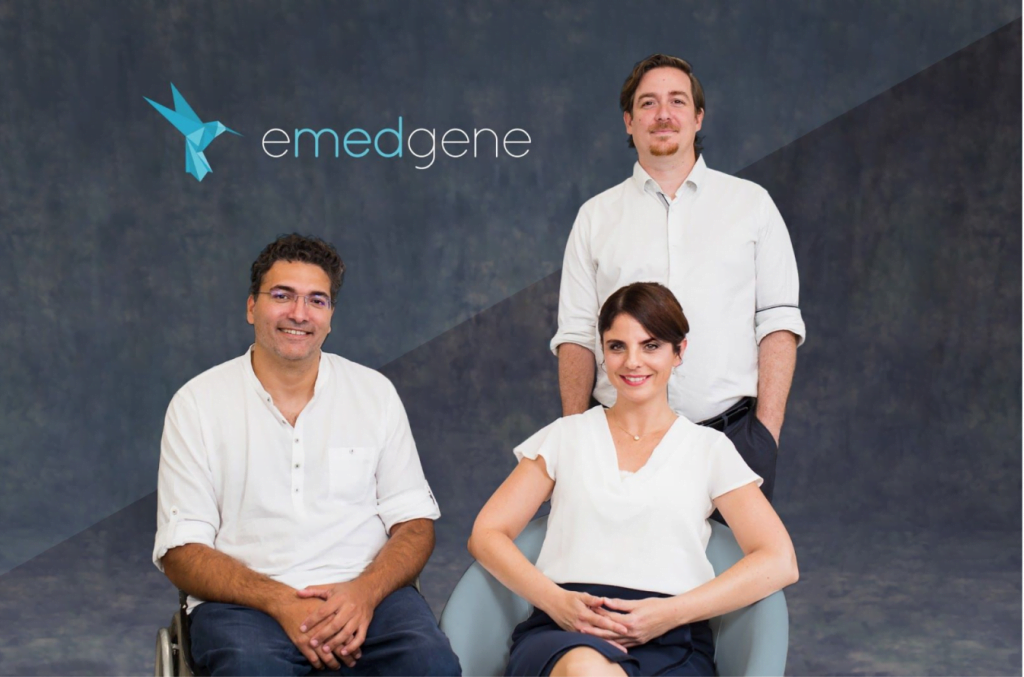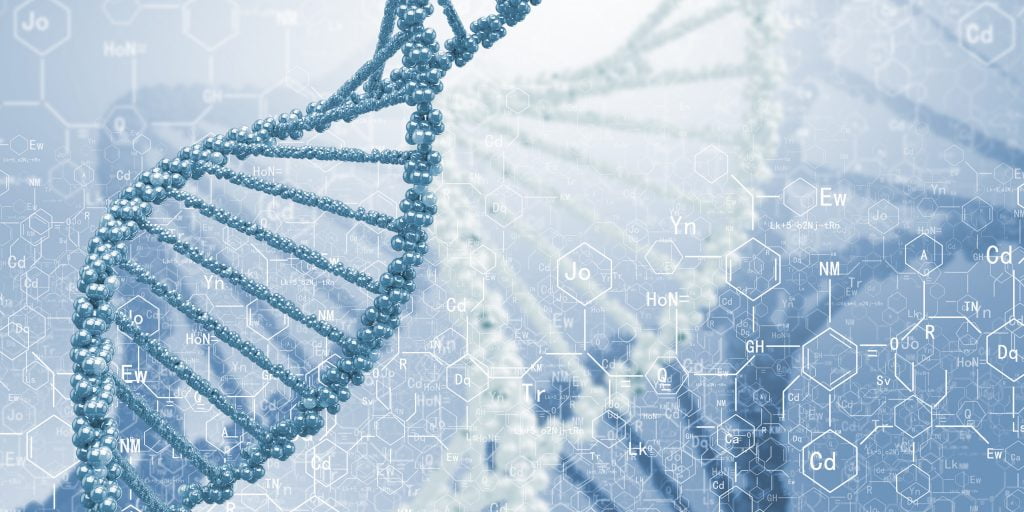For Dr. Shay Tzur, a geneticist and entrepreneur, being able to pinpoint a single-letter abnormality in DNA, merge it with a tech solution to interpret genetic tests automatically and thus speed up how genomic cases can be solved, is what keeps him coming to work excitedly every day.
Tzur is a co-founder and Chief Science Officer of Emedgene, an Israeli company set on scaling genomics-based care with artificial intelligence (AI). Together with co-founders Einat Metzer, Emedgene’s CEO, and Niv Mizrahi, VP R&D, this Israeli team is making it quicker and easier for geneticists globally to analyze and interpret genetic testing.
SEE ALSO: Preserving the Future: Israeli Researchers Unveil New Coding Technique To Store Data On DNA
“The cost of genomic sequencing has dropped during the last years. It’s easy to get sequencing data but analyzing this data is where clinical labs are running into difficulty. There are only a few thousand geneticists worldwide. So they need help,” Tzur tells NoCamels.
Indeed, technological advances are transforming healthcare to better identify disease genes and doing so is far cheaper today – just a few hundred dollars – than it was just 10 years ago.

But the human genetic code – what makes us, us — comprises some 3 billion letters, or, genetic bases known as adenine, cytosine, thymine, and guanine.
“The effect one single-letter can have is very interesting,” says Tzur, who did his PhD in population genetics, the study of genetic variation within populations.
Interesting, yes. But these single-letter abnormalities are also what define rare diseases. According to the European Union, there are between 6,000 and 8,000 known rare diseases such as childhood cancers, cystic fibrosis or Huntington’s disease.
Families searching for a diagnosis usually end up on a diagnostic odyssey, a kind of journey no one would choose to take.
On the one hand, the technological advances are helping grow the global genetic database and these interesting data add to the medical literature. Reports show there are about five new rare diseases reported each week and tens of thousands of new findings published every year.
On the other hand, there is so much data to analyze that the diagnostic odyssey for patients with rare diseases can take about five years and includes misdiagnoses, multiple doctors and conflicting opinions until a correct diagnosis is made.
It’s a Sisyphean task for the world’s geneticists to analyze and interpret this data in a timely manner.
“Interpretation is the major bottleneck,” says Orit Livnat-Levi, director of marketing at Emedgene.
And that’s exactly where Emedgene hopes to make a difference.
This AI-based genomic interpretation platform explains genetic tests automatically, thus helping geneticists manage their growing workload faster and with higher accuracy. And when AI helps save time and improve accuracy for sequencing and analyzing DNA, the researchers can make better decisions about care for the present and how best to prepare for the future.
“Genetic medicine will inevitably become the medical standard of care, if we can remove the hurdles to wider adoption. Emedgene does just that, with AI that can surface scientific knowledge in clinical settings, so that every patient has access to the best possible care,” Metzer said in a press statement.

The startup uses an AI engine that has learned to perform genomics research, after training with millions of data points from patient cases, databases, and the most recent genomics publications.
Sign up for our free weekly newsletter
SubscribeIn October, Emedgene launched Pathorolo, a machine learning algorithm capable of determining the likelihood of a genomic case to be solved based on available information. This is a groundbreaking breakthrough, Tzur explains, because it tells geneticists when to stop researching genomic cases if there is not enough available information and consequently save precious lab time.
Emedgene’s algorithm includes the most recent scientific literature curated automatically using Natural Language Processing (NLP).
“Pathorolo is a new and unique layer of explainable AI,” says Tzur. “Emedgene’s AI is already able to pinpoint causative variants, now it can also identify when a genomic case is likely to be solved. The algorithm is essentially scoring itself, which is extremely useful in evaluating its output.”
The company earmarked the US as its first target market since it has a larger population than Israel and because “half the US population has insurance coverage for genetic testing,” says Livnat-Levi, “so, they’re really feeling the pain of the dry lab operation [reporter’s note: a lab for data analyses].”
Adds Tzur: “With the amount of data we have collected, we know we can help solve this problem of the bottleneck.”
Genetic labs including Baylor Genetics, Baylor College of Medicine, Medical College of Wisconsin, Greenwood Genetic Center, TGEN and Clalit HMO are all currently using Emedgene’s platform.
Greenwood Genetic Center, a nonprofit organization advancing the field of medical genetics and caring for families impacted by genetic disease and birth defects in South Carolina, says Emedgene’s platform slashed its turnaround times on genomic analysis by 75 percent.
“Emedgene’s machine learning simplifies the highly complex task of variant analysis, allowing us to handle more tests every day,” Ray Louie, Assistant Director in the Center’s Molecular Diagnostic Laboratory, said in a press statement.
Analyzing genetic tests, and in particular, exome tests, was a time consuming and labor-intensive effort for Greenwood’s personnel. The analysis process required them to review dozens of variants. And, according to a press statement, searching for recently discovered gene-disease connections in databases and the literature made the task even greater.
Greenwood’s lab directors chose to test advanced technology that could help prioritize variants, provide access to an up-to-date database of gene-disease associations, and shorten analysis time.
The team evaluated a dozen genomic analysis platforms, and four platforms were selected for a performance assessment on a set of 10 previously solved cases, some of which were intentionally complex.
SEE ALSO: Israeli DNA Study Unveils Reconstructed Face Of Mysterious, Long-Lost Human Relative
“Emedgene was the only vendor able to automatically solve all 10 cases,” says Julie Jones, PhD, Greenwood’s Clinical Genomic Sequencing Program Director. “Other vendors’ prioritization algorithms were successful in roughly 30% of cases.”
The Israeli team is now working to meet an even higher diagnostic yield. “We consider scaling genomic interpretation a key factor in enabling advanced genomic medicine to patients in need,” said Metzer.
Viva Sarah Press is a journalist and speaker. She writes and talks about the creativity and innovation taking place in Israel and beyond. www.vivaspress.com
Related posts

Editors’ & Readers’ Choice: 10 Favorite NoCamels Articles

Forward Facing: What Does The Future Hold For Israeli High-Tech?

Impact Innovation: Israeli Startups That Could Shape Our Future




Facebook comments